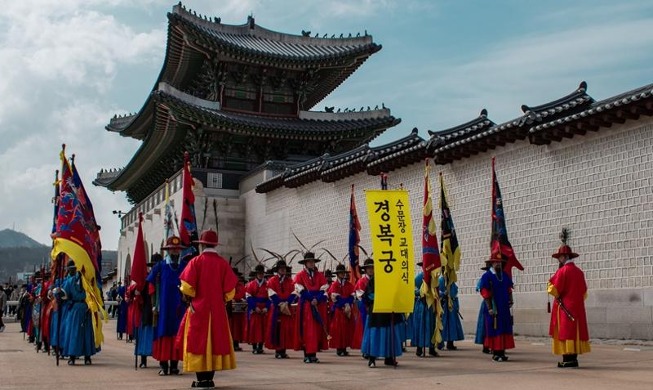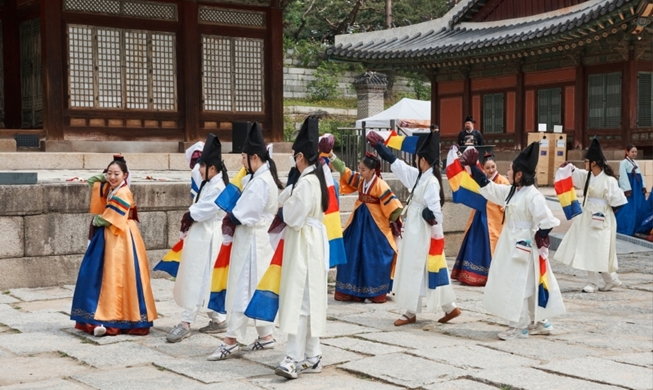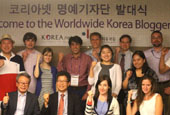-
 Korea.net's 24-hour YouTube channel
Korea.net's 24-hour YouTube channel- NEWS FOCUS
- ABOUT KOREA
- EVENTS
- RESOURCES
- GOVERNMENT
- ABOUT US
- 한국어
- English
- 日本語
- 中文
- العربية
- Español
- Français
- Deutsch
- Pусский
- Tiếng Việt
- Indonesian
Watching your favorite Korean star in a popular TV soap opera or discovering a new K-Pop idol group may have made you think how great it would be to have the next best thing: having a Korean friend. In my case, I was simply looking for a friend that could teach me the fundamentals of Korean grammar and make me more familiarized with hangeul (한글), the system of writing.
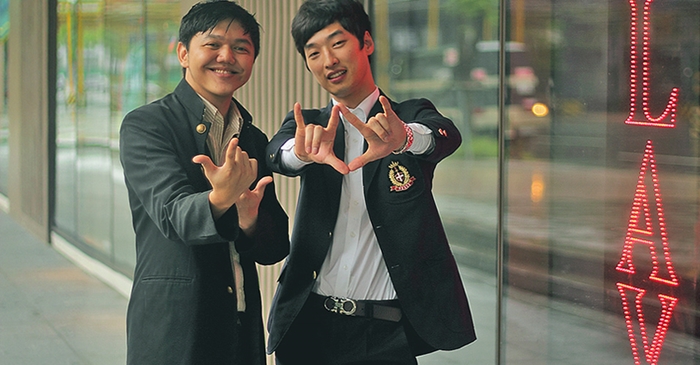
My interest in learning Korean grew the more friends I made and the more discounted return flights there were from Manila to Seoul. With Korea being less than 4 hours away on a low-cost airline, I’ve been tempted to go at least twice a year. Each time I was tempted, I indulged myself by going. Anyway, who can refuse a 100-dollar roundtrip promo?
However cheap the plane tickets may have seemed, leaving my city every week for language classes can still burn a hole in my pocket. Having a Korean tutor based in Manila would be great, although that didn’t come too easily because they were either tourists taking a brief vacation or English students enrolled in a short-term course. Fortunately for me, a Philippine friend referred me to Oh-Hyun, a Korean who happened to be a university student and had plans to stay until he finished his degree.
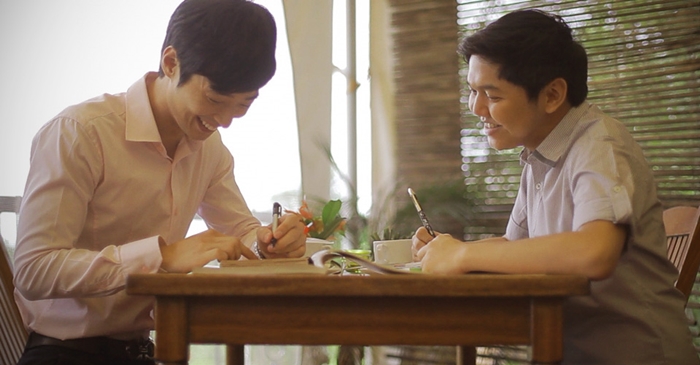
Oh-Hyun and I met on a regular basis for our Korean lessons. At the time, I was already taking formal lessons at the Korean Cultural Center but I needed supplementary tutorials to help increase my knowledge of the language. We spent a lot of time studying and we eventually became best friends. As expected, like any two close friends, misunderstandings arose due to cultural differences. My friendship with Oh-Hyun taught me how to be a bit more Korean in the following aspects:
Importance of Time
Every second counts for Koreans. Their ppali ppali (빨리빨리) culture, meaning to be fast-paced, has trained them to not waste any time. Buses and trains in Seoul arrive and leave on time, public gatherings are not delayed and restaurant waiters are quick like lightning in serving dishes. A small delay of 5 or 10 minutes can cause frustration. On the other hand, Manila traffic jams are a norm and rainy days can deliver massive floods around the metropolis, so being late for an appointment is oftentimes forgivable. There were a couple of instances that I was late for a tutoring session and it irritated Oh-Hyun. He then became more understanding after living in Manila for several months and didn’t mind my late arrivals, as long as I called him early if I was already caught in a bad traffic jam.
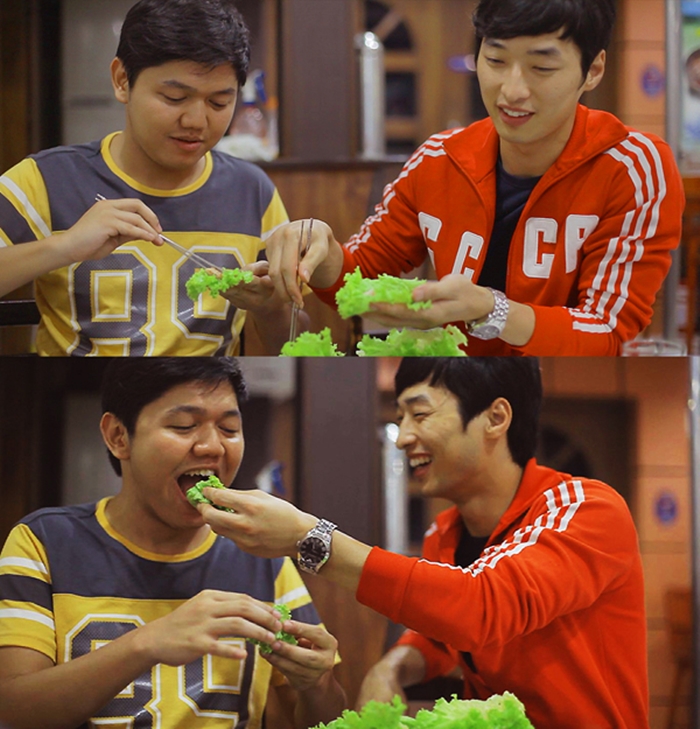
Bromance
One distinct characteristic of Korean culture is the concept of brotherhood. They can be very expressive in how much they appreciate you, giving you long tight hugs, saying, “I miss you,” inviting you to a jjimjilbang (찜질방; bath house) wherein both of you are completely naked or by putting a samgyupsal (삼겹살) wrap in your mouth, just as in the photo above. Try searching for “K-pop bromance” on YouTube and you will understand what I mean. I experienced these things whenever I was in Korea, and I’ve gotten used to such practices. While this may be construed as something more than a platonic relationship between two men, this bond is a facet of same-sex friendships in Korea. With the Philippines taking on so much of the machismo culture, there is a completely different idea about the way in which two male friends should relate to each other. This can probably be attributed to the long Spanish and U.S. colonizations that had strict rules on masculine affection. For Oh-Hyun, however, he didn’t really mind, but I had to explain that there was the possibility that people might take our closeness the wrong way. So we tried to be conscious with our actions, like being careful in uploading photos of us together on Facebook that could be categorically labeled as “over-bromance.”
Age Matters
Strictly speaking, in Korean society you can only be friends with someone who is within the same age group. A hyung (형; a term used by a guy for an older brother) can’t be friends with a dongsaeng (동생, a younger person), but this doesn’t mean that they can’t have a deep and close relationship. A dongsaeng is expected to show a certain level of respect to a hyung. The whole hyung-dongsaeng concept is not new to me, but I still feel uncomfortable whenever Oh-Hyun performs simple tasks for me, like washing the dishes after eating or carrying my grocery bags even if I'm able to carry them. I attempt to volunteer, but he still insists on doing these duties since he is the younger one.
Another interesting aspect is that the older person pays for the younger person. Dutch pay isn’t as common as it is in other countries. This practice was surprising to me during my first few visits to Korea. My older Korean friends would lavishly spend money for a lunch meet-up or a night of drinking. So as a form of “revenge” to Oh-Hyun, I frequently pay for both of us whenever I hang out with him. At first, he felt awkward and pointed out that I’m a foreigner so I’m not obliged to practice that part of Korean culture. As time went by, however, we adjusted to each other’s actions and we feel truly grateful when one shows a gesture of kindness toward the other.
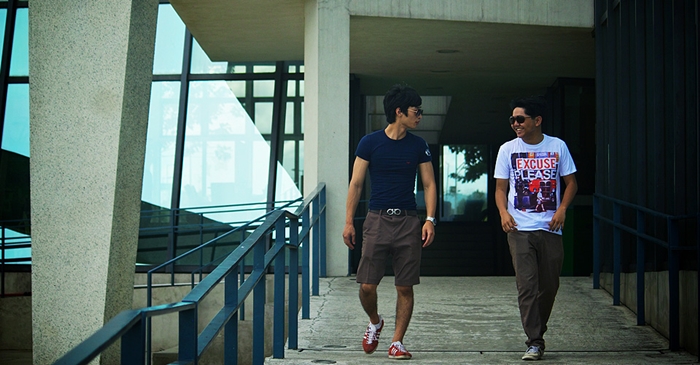
I've identified several things that friends from different cultures can find surprising — and sometimes irritating — about each other. However, it goes without saying that with a Korean friend or not, cultural differences will always be present and they will most likely spark misunderstandings. That’s why it is always important to accommodate each other’s differences by learning and understanding the other's deeply rooted practices. I am still learning, but discovering differences and finding ways to work around it with a dear friend is always worth the trouble.
To know more about our friendship and to see the video we submitted for a 2013 contest by the Ministry of Foreign Affairs (which received a Bronze recognition), click here: My Korean Best Friend
Written by Marius Oczon on August 29, 2014 in Special Report, Worldwide Korea Bloggers




